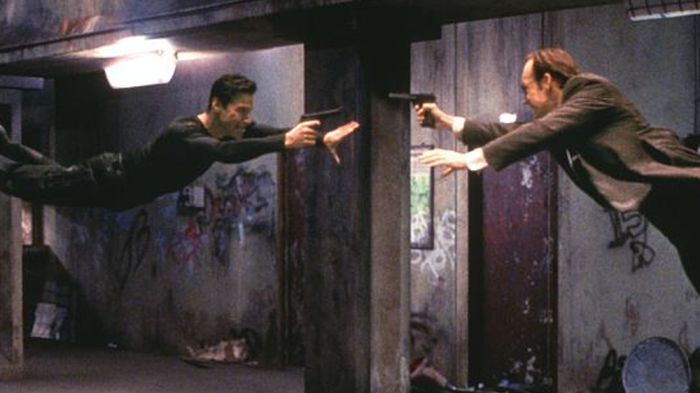But in “The Matrix,” the landmark of liquid-action sci-fi released 20 years ago today, the artificial intelligence comes at us in a uniquely teasing, forward-tilting, who’s-that-in-the-mirror way. The movie is about a computer-company office drone, played with pinpoint charisma by Keanu Reeves, who gets tugged out of his existence by a rebel underground that unplugs him from the Matrix.
The term “artificial intelligence” was coined in 1956, but one way or another it has been the subject of just about every great science-fiction movie, from “Metropolis” to “Frankenstein,” from the paranoid fables of the ’50s (about brainy robots and aliens with giant noggins who were like “advanced” versions of ourselves) to “2001: A Space Odyssey,” in which HAL, the computer who talks like a wounded therapy patient, displays the anger and ego of a jilted human being. And by the late ’70s and early ’80s, the Machines Who Could Think were really taking over. “Alien” featured a technologically evolved monster with the metallic jaws, the helmet head, and the relentlessness of a demonic thresher, the most sympathetic character in “Blade Runner” was a replicant, and “The Terminator” gave us a dystopia ruled by the machines, featuring a weaponized badass who was the ultimate programmed destroyer.
